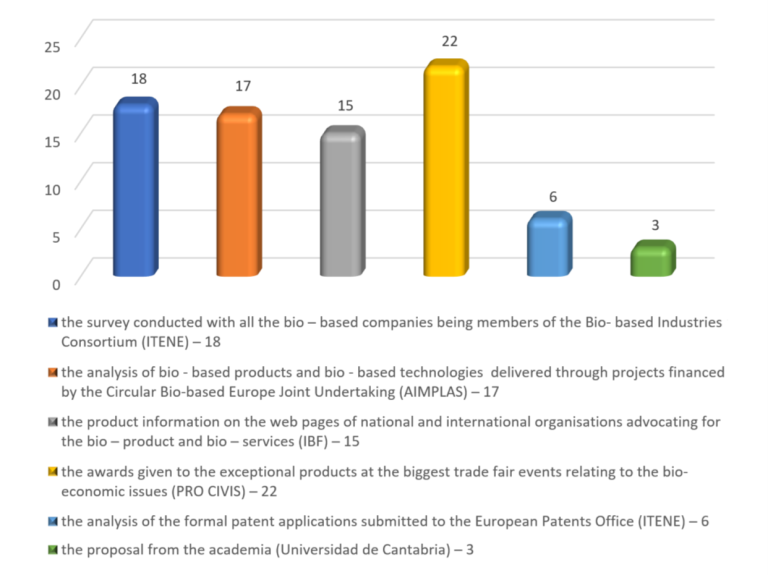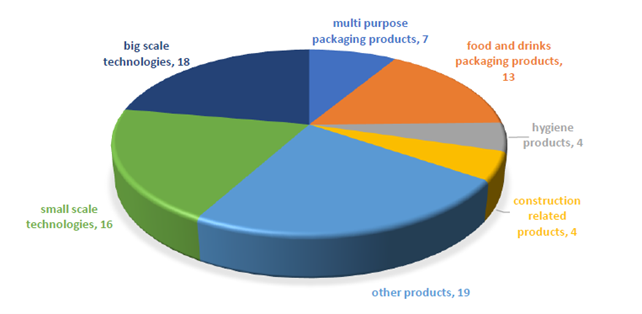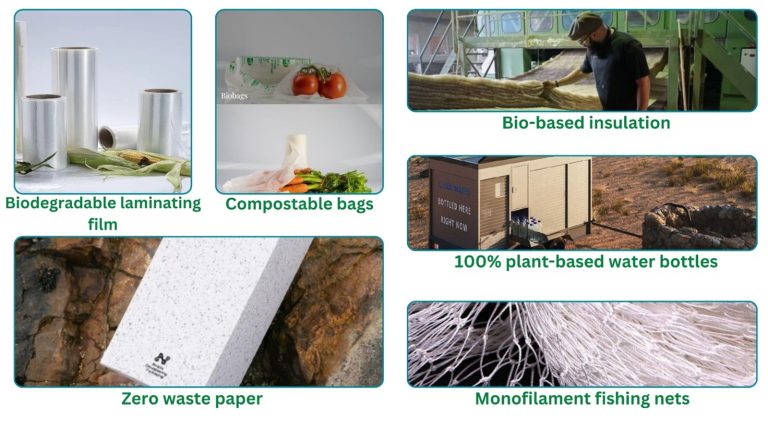Bio4HUMAN Achieved its Second Milestone
Bio4HUMAN delivers on the catalogue of innovative bio-based solutions relevant to waste management in the humanitarian context
Bio4HUMAN successfully achieved its second milestone by concluding its scoping exercise.
After analyzing the types of waste commonly found in humanitarian settings and highlighting key challenges and opportunities in waste management, the Bio4HUMAN team, led by the scoping work package leader PRO CIVIS, began identifying suitable bio-based solutions. Their goal was to find bio-based products and technologies that meet the needs of both humanitarian organizations and the communities they support.
The actual process of scoping for bio-based solutions, executed jointly by PRO CIVIS, Instituto Tecnologico del Embalaje, Transporte y Logistica (ITENE), AIMPLAS – Asociacion de Investigacion de Materiales Plasticos y Conexas, Irish Bioeconomy Foundation, University of Cantabria and WeLOOP, took the form of surveying entities representing bio-based industries (members and associate members of the Bio-based Industries Consortium) and analyzing various data sets, like outcomes of projects financed by the CBE JU initiative, the lists compiled by national and international organisations advocating for the bio-based solutions, patents and market awards given to the exceptional bio-based products and technologies. – explains Damian Kuznowicz, project coordinator from PRO CIVIS.

Altogether, 81 solutions have been scoped and presented in a more detailed format to the whole Bio4HUMAN consortium for further feedback. Based on the features of applicability and functionality, the solutions were initially clustered into a few main categories, such as multi-purpose packaging products, hygiene products, construction-related products, packaging products for food and drinks, and small-scale technologies. Of particular interest were solutions combining both the product side and the technology side, allowing for the technology/installation to be easily transferred to the destination location and for the products to be prepared and delivered on site of the humanitarian intervention. For many of the solutions – the owners & innovators expressed explicit interest in working with the humanitarian partners and even declared further research expanding the scope of the current applicability, should the solution be widely accepted and feasible for humanitarian purposes.

As Artur Sobolewski, expert at PRO CIVIS further explains: Bio4HUMAN did not limit itself to the quite obvious catalogue of products (like one dimensional plant-based packaging items) and technologies (black soldier flies) and tried to look for innovative “out of box” ideas, often still at the lower TRL, like “starch-based biopolymer active and intelligent food packaging” or “polystyrene-consuming lesser mealworm”. A broader horizontal perspective to solid waste management in the humanitarian context has also been applied, resulting in putting on the list ideas such as biodegradable mulching spray limiting the periodic and frequent replacement of plastic films being commonly used in agriculture.
The important steps of establishing the final version of the list of bio-based solutions were the internal and external consultation processes. Especially the open webinar organized by Enspire Science, which attracted participation of regional and international humanitarian organizations, contributed substantively to the final set-up of recommended products and technologies.
During the workshop, representatives of humanitarian organizations evaluated the potential applicability, functionality, and efficiency of the proposed products in the humanitarian context. The technologies have been mostly evaluated according to transferability to humanitarian destinations and the feasibility of the technological implementation and operation.
Marie Šmídová Skálová – humanitarian advisor from People in Need emphasizes: We as Bio4HUMAN consortium received very valuable feedback. It was good to get to know the actual willingness of the different humanitarian organisations to include the proposed solutions to their supply chains and to hear their thoughts about the policies and market mechanisms needed for incentivizing such inclusions.
For Beata Dolińska – global head of programs from Polish Humanitarian Action, the possibility of evaluating the potential interest in establishing the production locally and of naming the attributes of given technologies to form part of a development component to the humanitarian intervention, especially in the protracted crisis/recovery phases were of particular value.
An interesting and not obvious perspective on the proposed solutions was expressed by the Bio4HUMAN Ethics Advisory Board and Internal Ethics Officer. The issue of potentially overharvesting seaweed and disrupting marine ecosystems while delivering on the seaweed-based packaging, and the concern of growing bio-feedstock on arable land for production of laminating films and PLA bottles, which may potentially compete with food production, are just two examples of the substantive and broadly understood ethical observations.
Summing up the whole scoping exercises, Tadeusz Pęczek – CEO of PRO CIVIS points out to the final results: The entities responsible for this particular Project’s activity delivered a good result. The final List of 27 bio-based products and technologies comprises solutions contributing strongly to a more circular bioeconomy and exercising features of renewability, recyclability, biodegradability, compostability and sustainability. There are bio-based solutions with functional properties comparable to those of their fossil-based counterparts. They allow for durable applications and a reduction in the use of material. The list includes innovative, patented, and certified products and technologies with the potential to make an impact on the solid waste management connected to humanitarian interventions.

Following this second milestone, the Project enters its next phases, during which the functionalities and properties of the scoped bio-based solutions will be assessed from the perspective of the environment (LCA methodology), costs (LCC), social impacts (social-LCA) and governance aspects. The applicability and feasibility of identified solutions in Bio4HUMAN’s two target locations, South Sudan and the Democratic Republic of Congo (DRC), will be tested after the results from LCA are received.
Experts in the work package 5 (LCA of innovative solutions) and 6 (Socio-economic and governance aspects evaluation) are currently assessing the existing landscape of humanitarian kits, including food, agriculture, non-food items (NFI), and water, sanitation, and hygiene (WASH) components. This analysis also considers various importation possibilities and explores current end-of-life scenarios. The next phase of the project is focusing on developing inventories of innovative bio-based solutions to replace selected kit items, packaging materials, or even redesign end-of-life strategies. These alternatives will then be compared with current solutions to evaluate their benefits from environmental, economic, and social perspectives. By integrating bio-based solutions, the project aims to reduce the environmental footprint of humanitarian aid while ensuring cost-effectiveness and social impact. – explains Carolina Szablewski, Chief Operating Officer at WeLOOP.
Bio4HUMAN is a pivotal Horizon Europe-funded project, aiming to provide humanitarian aid operators with scientific insights into the potential and sustainability of bio-based products for humanitarian use. The project will identify solutions for solid waste management by assessing bio-based products’ applicability and acceptance in the humanitarian context, particularly in the Democratic Republic of Congo (DRC) and South Sudan.
The Bio4HUMAN consortium brings together 10 partners, including humanitarian organizations, bio-based sector actors, and circular economy experts.
